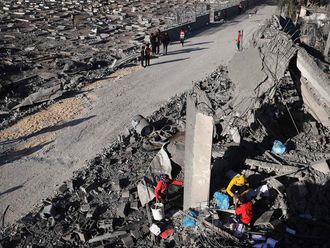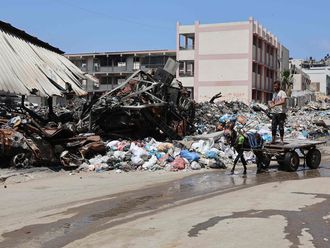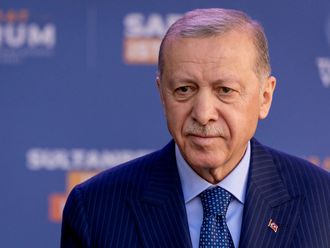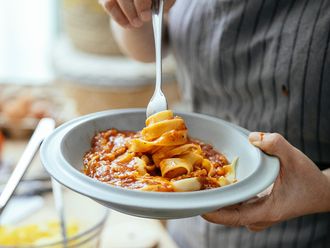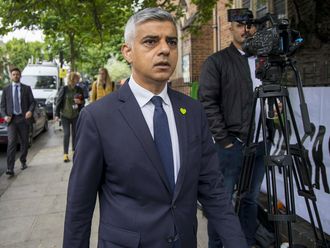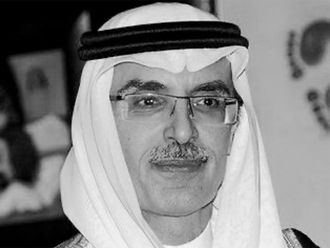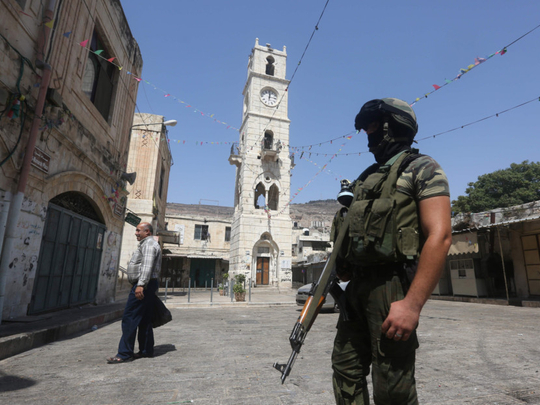
Nablus: The brother of the dead man sat in a plastic chair, smoking cigarettes and drinking coffee as mourners approached to pay respects. On the wall was a poster of the slain man, the latest Palestinian to meet an untimely, violent end.
But this man, Ahmad Halawa, was not killed in a clash with the hated Israeli military. A Palestinian police officer accused of plotting the murder of two other officers, Halawa was beaten to death while in the custody of Palestinian security forces.
“We’re living under Israeli occupation,” said the brother, Abdullah Halawa, “but to be honest with you, we’ve never seen anything like this from the Israeli soldiers.”
Not that anyone in Nablus, the second-largest city in the occupied West Bank, has grown fond of the Israelis, but Halawa’s death underscored the internal divisions tearing at Palestinian society with the approach of municipal elections next month.
It came after weeks of violence between the Palestinian authorities and what they call outlaw groups, touching off a wave of unrest marked by stone throwing, tear gas and a raucous funeral procession for Halawa of thousands of people marching through the streets this week.
The riots and protests reflect the challenge for Palestinian security forces to maintain order in West Bank cities under the full control of the Palestinian Authority amid disenchantment with the authority and its leader, President Mahmoud Abbas.
Some stalwarts of Abbas’ Fatah party are calling on him to postpone or cancel the October 8 elections, fearing losses to rival factions within the party or to candidates sympathetic to Hamas, the militant group that controls Gaza.
“When I see these protests that are taking place, it’s an indicator that there’s a lot of discontent with Fatah and its rule, and Mahmoud Abbas and his rule and specifically with where this government is not taking us,” said Diana Buttu, a lawyer in Ramallah who once worked for Abbas but has become one of his harshest critics.
“He’s got nothing to show after all these years, and so increasingly he’s turning inward, and so he’s trying to suppress dissent.”
Akram Rajoub, the governor of Nablus — who has been targeted by protesters demanding that he and Abbas resign — acknowledged the public frustration. “We feel we have made mistakes in the past,” he said in an interview in his office the day after the funeral, “so we had a build-up which led to what we just experienced in Nablus.”
The coming municipal elections have highlighted the fault lines. Palestinians have not held national elections since parliamentary contests in 2006 resulted in surprise victories by Hamas. West Bank cities like Nablus last elected new councils and mayors in 2012, with Fatah posting mixed results, in some cases having its mainstream slates outpolled by renegade factions of its own party.
Abbas, 81, and in his 12th year of what was supposed to be a four-year term, surprised many by calling the October balloting. In roughly half of the jurisdictions, the filing deadline passed with only one slate of candidates, or even none, making the elections something between a coronation and a joke. But in the most populous cities, like Nablus, rival factions will compete for office.
Jamal Tirawi, a Fatah central committee member from Nablus, said Abbas should cancel the vote. “I don’t think this is the time for the Palestinians to have municipal elections,” he said. “The streets are restless.”
The latest violence has roots dating to June, when local gunmen clashed with Palestinian security forces. Last month, two Palestinian police officers trying to arrest fugitives in the market were shot and killed. That night, Palestinian forces responded by raiding the market, killing two men they say were armed.
One of them was Fares Halawa, 24. Within days, Palestinian security forces arrested his uncle, Ahmad Halawa, 50, a burly, balding man with a salt-and-pepper moustache who was a police officer and former member of Al Aqsa Martyrs’ Brigades, Fatah’s armed wing. The Palestinian security forces called Ahmad Halawa the “mastermind” of the killing of the two officers in the market. By morning, he had been beaten to death in Jneid prison. Other family members were arrested and released.
Rajoub, the governor, described the Halawa family as a clan of troublemakers. Supporters of the government, while condemning the beating of Halawa, said the authorities had to pursue killers of police officers or risk losing control of the territory altogether.
“The Palestinian National Authority is enforcing the law, showing the people what they can do,” said Raed Amer, president of the Nablus Prisoners Club, an organisation that supports Palestinians locked up by Israeli forces. “Because if they don’t, it’s game over for them.”
But the fact that Ahmad Halawa had been part of Fatah’s security structure suggests just how deep the schisms go. At his mourning tent, relatives denied that their family was a criminal faction and said they had a long history of resisting Israeli occupation alongside the same Fatah leaders with whom they are now at odds.
“We don’t know why they’re doing this,” said the slain man’s brother Abdullah, who was also the father of Fares, the young man killed in the market. “We’re a family filled with freedom fighters. If we’re a family filled with outlaws, then the 20,000 citizens of Nablus who marched in the funeral of my brother are also outlaws.”
He said the battle was not over. “We are not going to remain silent. We want the whole world to know.”


